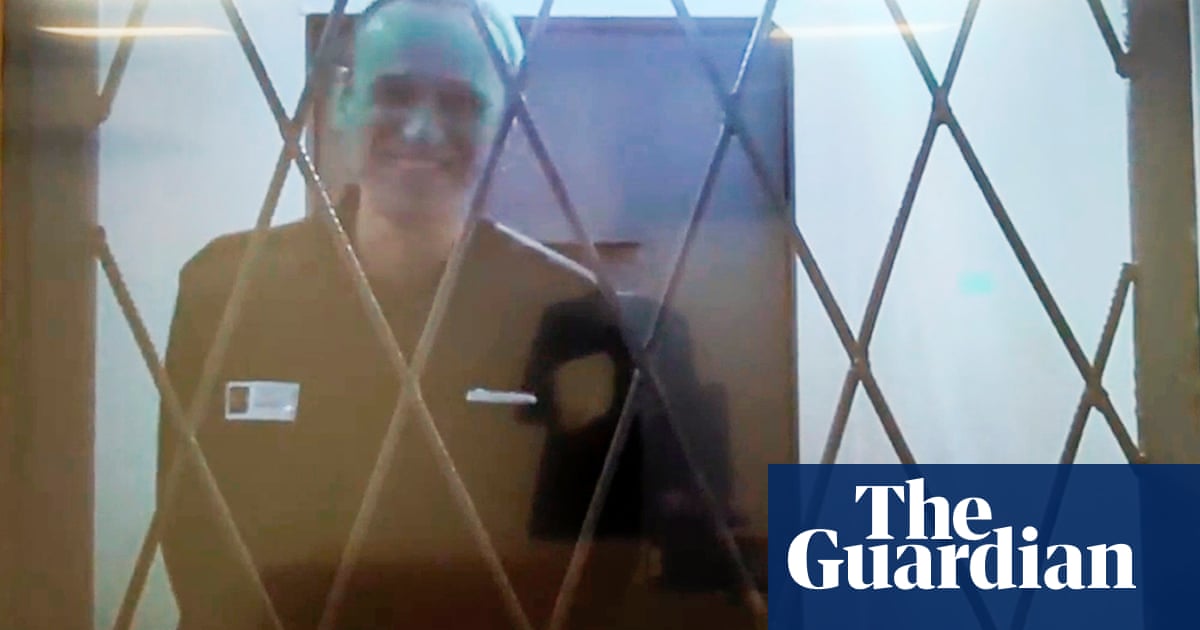
The Kremlin has rejected accusations that Vladimir Putin was involved in the suspected poisoning of opposition critic Alexei Navalny, who is in a coma in a German hospital.
A spokesman called reports of his poisoning “hasty” in the Kremlin’s first remarks since the Berlin clinic where Navalny is a patient confirmed he had been contaminated with a cholinesterase inhibitor – part of a group that includes nerve agents and pesticides, as well as certain drugs.
Dmitri Peskov, the Kremlin spokesman, said on Tuesday that accusations against Putin over the poisoning were “empty noise” and “idle talk”. “We can’t treat as serious the accusations you’ve voiced,” Peskov said during a regular conference call with journalists. “These accusations can in no way be true.”
In extensive remarks on the case, Peskov said that no criminal investigation would be opened in Russia unless doctors identified the specific substance with which Navalny had been poisoned, suggesting it would stonewall such a move.
Berlin’s Charité hospital has not identified the specific poison responsible for Navalny’s sudden illness on an internal Russian flight last Thursday. He is being treated with atropine, the same antidote used after the 2018 nerve agent attack in Salisbury.
Peskov suggested that various medications could have been the cause for the sudden drop in Navalny’s levels of cholinesterase, an enzyme necessary for the proper functioning of the nervous system.
“Neither our medics, nor the Germans have determined [the substance],” said Peskov. “If the substance is identified, if it’s determined, that it is a poisoning, then, of course, this will be cause for an investigation.”
Cholinesterase inhibitors can range from medicines to pesticides and nerve agents, including the novichok chemical weapon used in the 2018 Salisbury attack. The opposition critic has been in a coma since Thursday.
Navalny’s supporters have accused Russia of endangering his life by delaying his transfer to Berlin and accused doctors of helping to cover up the suspected poisoning.
Several western countries have already demanded a criminal investigation into the suspected attack. The US secretary of state, Mike Pompeo, on Tuesday said Washington backed the calls.
“If the reports prove accurate, the United States supports the EU’s call for a comprehensive investigation and stands ready to assist in that effort,” he said in a statement. “Navalny’s family and the Russian people deserve to see a full and transparent investigation carried out, and for those involved to be held accountable.”
Germany’s chancellor, Angela Merkel, and her foreign minister, Heiko Maas, said in a statement on Monday that “those responsible must be identified and held accountable”.
“In light of the prominent role played by Mr Navalny in the political opposition in Russia, the authorities there are now urgently called upon to investigate this crime to the last detail – and do so in full transparency,” they said.
The US ambassador to Russia had also said Navalny’s poisoning, if confirmed, would be a critical moment for bilateral relations. Sergei Lavrov, the foreign minister, was scheduled on Tuesday to meet the US deputy secretary of state, Stephen Biegun, who is currently touring the region.
In his remarks, Peskov also said the Kremlin had no information on Navalny’s being surveilled before the alleged poisoning, and denied there was a tendency for critics of the Kremlin to be targeted for murder.
“You must agree that there are a lot of poisonings every day in any country of the world,” Peskov said. “And here, if we talk about a particular case, we still need to operate with accurate information. I don’t have this data. If you have it, then share it.”
The speaker of Russia’s lower house of parliament later on Tuesday ordered one of its committees to investigate if foreign forces had been involved. “The State Duma security committee will be instructed to analyse what happened in order to understand whether this was an attempt on the part of foreign states to harm the health of a Russian citizen to fuel tensions inside Russia, as well as to formulate fresh accusations against our country,” Vyacheslav Volodin said in a statement.












